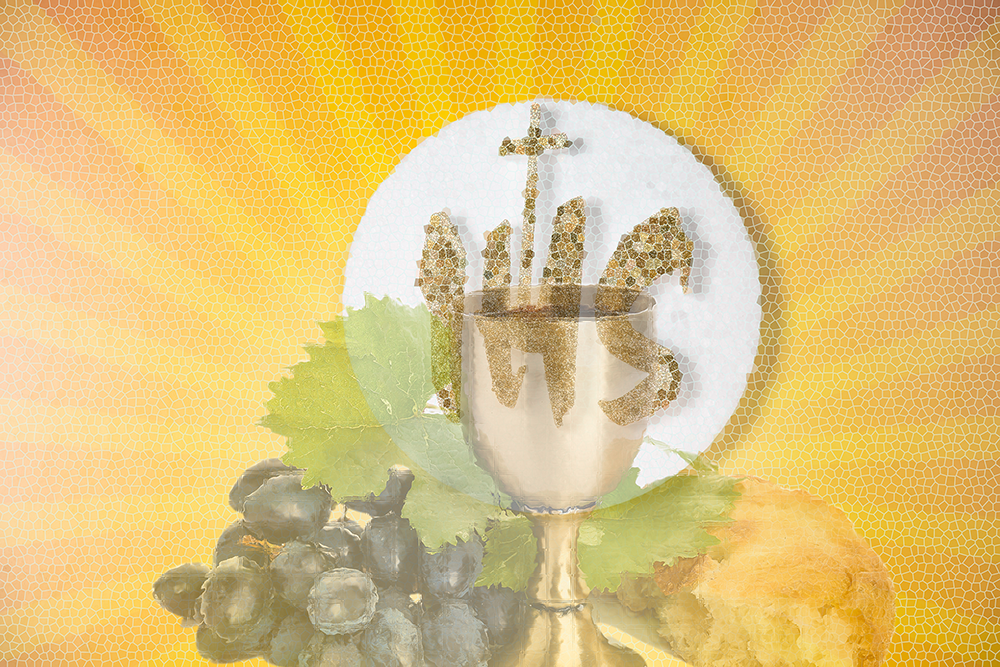
Many years ago, the poet Gerard Manley Hopkins translated the Latin hymn Adore te devote into English. His first verse began:
Whom I do adore
Masked by these bare shadows
Shape and nothing more.
Hopkins invite us to recognise a God who hides God’s very presence from us, yet constantly invites us ‘to come and see’. What an amazing God. This is our God. This God is a sacred presence hidden in plain sight in the Eucharistic mystery but also hidden in God’s embodiment in creation.
Eucharist is expansive. It exists in every aspect of our world and beyond it. There are both visible and invisible signs of this sacred presence if we look and wait in silence for the revelation of ‘Being’, beyond surface elements such as consecrated bread and wine. Bread and wine are such staple elements of life in many cultures. They are fundamental to existence for a huge number of people. Bread and wine are products of our Earth. The same Earth Sally McFague has called “The Body of God”. Such insight holds an understanding of the power of God who is God of both the microcosm and the macrocosm.
Corpus Christi is a feast that has been with us since the thirteenth century. There is a danger we might take it for granted without reflecting on it since it has been with us for so long. We have celebrated it with flowers, processions, festivals, and Eucharistic Congresses. Somehow, however, we knew all these festivities were a celebration of the God-life within and without us. The external celebrations shadowed the deeper celebration, that is, the call to intimate love the Eucharist opens for us at all times.
Thomas Merton, the Cistercian mystic, suggests we need to be aware of three things before we can truly respond to that call to intimacy. The first is we need to have a true sense of self. There must be an ‘I’ to respond to the God who is Thou. Only then can a true relationship exist. Then we must be willing to bring every aspect of our life to that relationship. Lastly, we need to remember that God is shy and so am I! To reveal oneself truly is no mean feat. What must it be for God to do so?
On this feast we celebrate a Godhead ‘here in hiding’ whom only love can draw out of that secret place. This love is both our love and God’s love meeting as one. To come to that place though is a lifetime’s journey. A pilgrimage! To paraphrase T. S. Eliot, we will arrive at the place where we began and know it for the first time. We began in God and we will continue in God for all eternity. The truth is that each meeting with this God will be like a first meeting and a first knowing. It is the same for each Eucharistic meeting. Each meeting is an enriched blessing; a further knowing. Each communal recognition of the God of life in other human beings, in all of creation, is an opening to deeper love and communion. Those meetings are a gift in every way.
Corpus Christi is not a feast for one day of the year, but it is a name for the finite and infinite place where the God of life opens the future for us. It is a place where God calls us to participate in remaking Earth and, paradoxically, invites us into presence here and now.
And as Hopkins says so can we offer ourselves to this great work:
Lo lies here a heart
Lost, all lost in wonder
At the God Thou art.
Colleen O’Sullivan rsj
